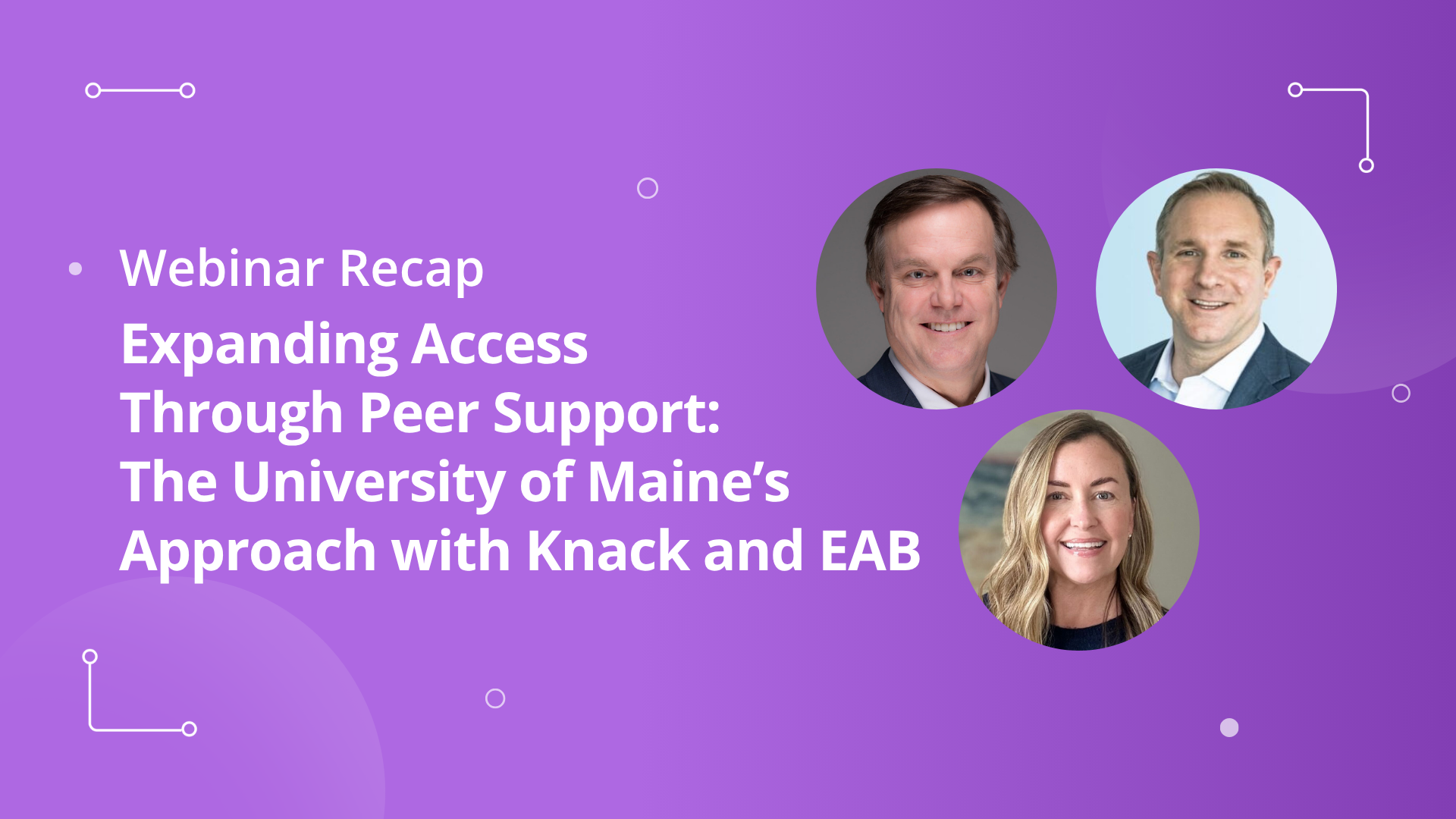When the University of Maine set out to strengthen student success and retention, leaders knew they needed more than a single solution. They needed an ecosystem that could identify students in need, connect them with resources in real time, and make support accessible to every learner. That is where EAB and Knack came together.
In a recent webinar, Eliminating Barriers to Drive Engagement with Support, Ed Venit from EAB, Dr. T. Scott Marzilli from the University of Maine, and I explored how the university’s partnership with EAB and Knack is redefining what it means to support students holistically.
Building a Connected Success Network
UMaine’s student success strategy is powered by EAB Navigate360, a campus-wide CRM that coordinates communication campaigns, early alerts, and advisor outreach. Faculty progress reports, known as Black Bear Early Alerts, flag students who may need additional support within the first weeks of the semester.
Identifying at-risk students is only half the equation. The next step is ensuring those students get help quickly and equitably. That is where Knack’s managed peer tutoring comes in.
By integrating Knack into its Navigate360 workflow, UMaine ensures that every alert is met with action. When a student is flagged for academic risk, outreach from the Office of Student Academic Success now includes a referral to peer tutoring delivered by trained, course-specific peers through Knack. The result is a unified support system that reaches, engages, and retains more students.
Scaling Access Through Partnership
Before partnering with Knack, UMaine’s in-house tutoring program was limited by funding and staffing capacity. Tutoring was offered mainly in gateway courses, and services were group-based, leaving many students without personalized help.
In 2023, the university launched a phased partnership with Knack to expand tutoring access across disciplines and modalities. Knack’s model provided flexible scheduling, course-level tutor matching, comprehensive training, and automated payroll and reporting that reduced administrative lift.
Now, when UMaine’s success teams identify students through EAB’s early alerts, they can connect them directly to peer tutors without adding operational burden. It is a model that is both scalable and sustainable, ensuring that no student falls through the cracks.
From Early Alerts to Early Wins
Marzilli shared how this integration has transformed the student experience. With Navigate360 and Knack working together, faculty and advisors can intervene earlier, students receive personalized outreach, and tutoring participation is higher than ever.
Most importantly, the approach is closing equity gaps. Nearly 75 percent of UMaine’s early alerts reach the university’s most vulnerable student populations, who now have faster access to the individualized support that helps them persist and thrive.
As Venit noted during the conversation, it is not just about technology. It is about connection. The tools only matter if they help students feel seen, supported, and capable.
A Model for the Future of Student Support
UMaine’s partnership with EAB and Knack shows what is possible when institutions align around a shared vision: connecting every student to the right support at the right time.
Together, they have built a success ecosystem that is proactive, personalized, and equitable, removing barriers that often stand between students and their goals.
At Knack, we are proud to partner with institutions like the University of Maine and EAB to make peer learning a core part of student success strategies. If your campus is ready to expand access to academic support and create stronger networks of belonging, connect with our team at Knack to learn how we can help.
